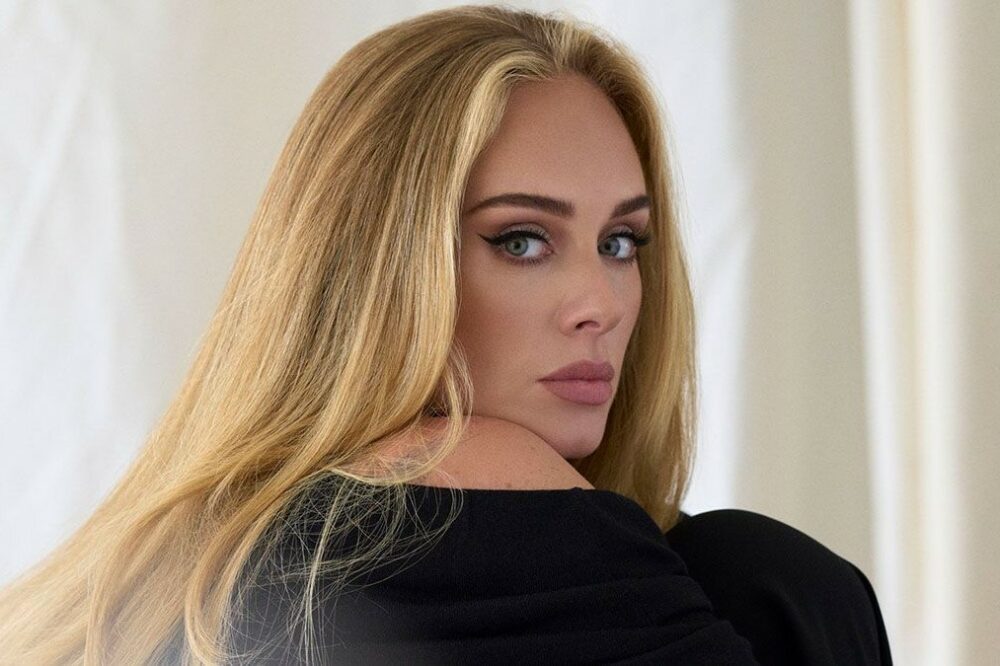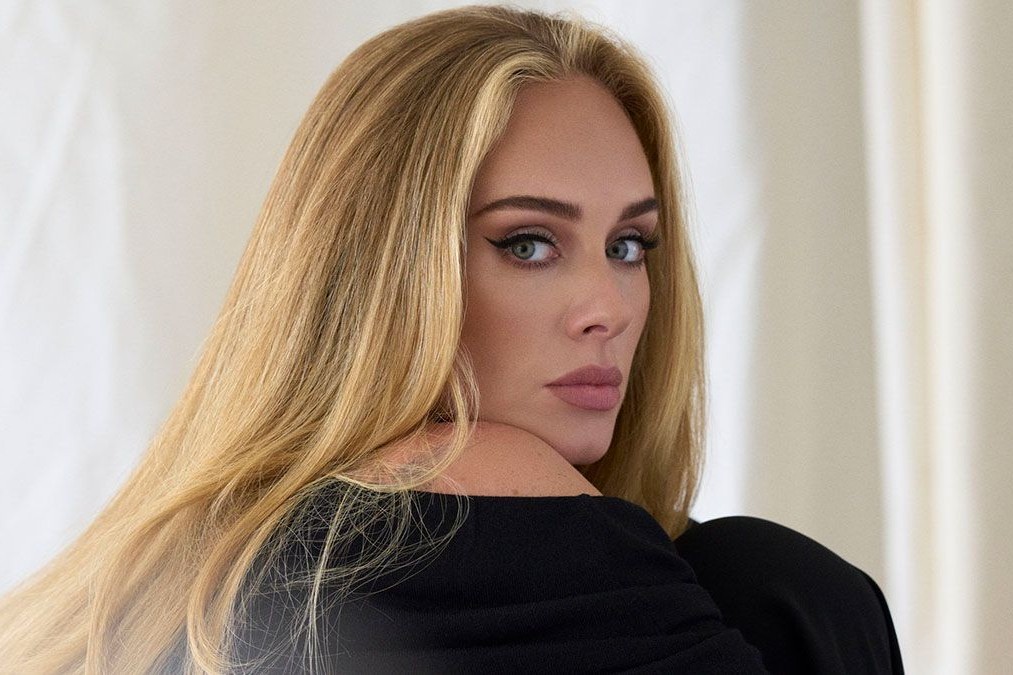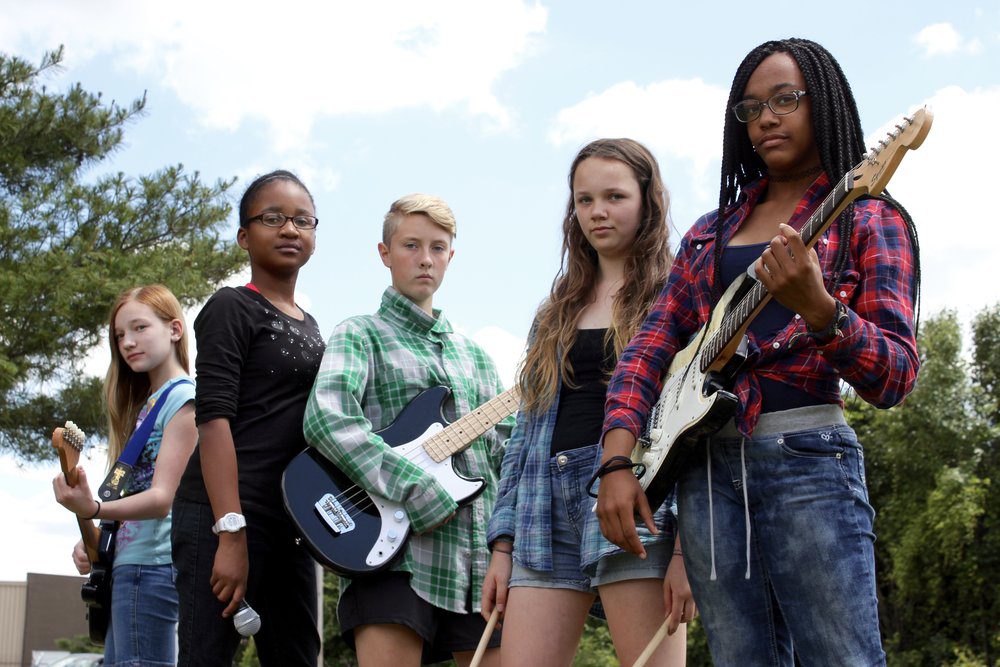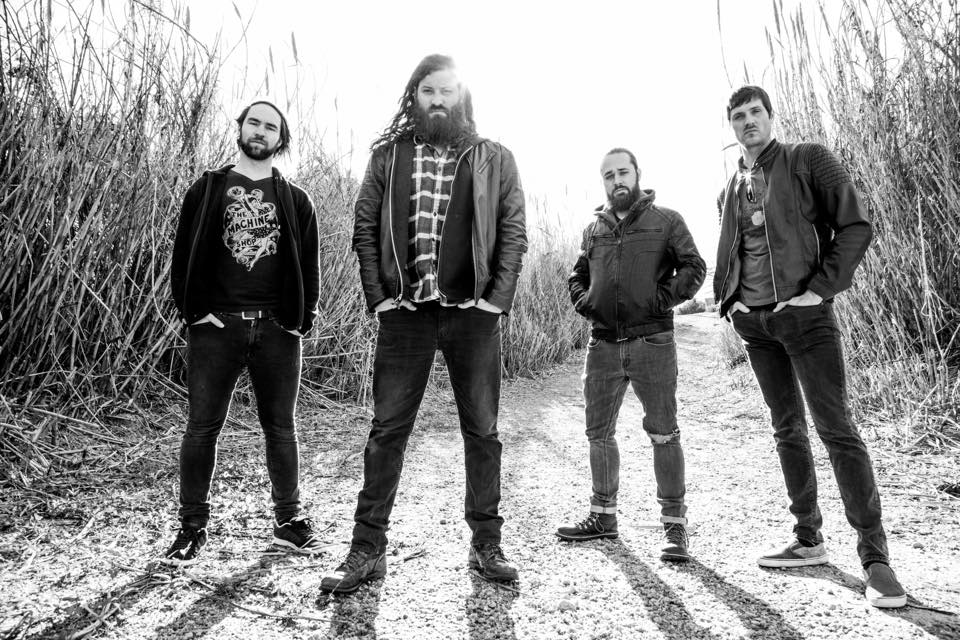
ONLY NOISE explores music fandom with poignant personal essays that examine the ways we’re shaped by our chosen soundtrack. In this installment, Jason Scott soothes their growing pains with the balm of everyone’s favorite siren singer, who released her fourth studio album last week.

I can’t listen to Adele’s 25 without crying. When her third studio record first arrived in the world, I was withering away in a grimy, cockroach-infested apartment in Washington Heights. I braved the sweaty A train downtown two or three days a week for a fruitless, unfulfilling internship. I ate ramen for dinner, meandered through garbage-laden streets to whittle away the evening hours, and didn’t own a mattress. From the prickly kiss-off “Send My Love (To Your New Lover)” to the serene, riverside haunting of “River Lea,” the 11-track torch collection nurtured me through one of the most transitional periods in my life.
Loneliness and sorrow pooled around my body, and 25 reflected, in moon-shaped puddles, a numbness back into my eyes. Mistakes and regrets rattled their chains, as I fell deeper into slumber 一 I’m speaking quite literally and metaphorically here. Around me, the world quivered with life and purpose, yet I felt nothing. Nothing. Nothing tears you apart more savagely than everything. Adele’s balladeering seared through skin and directly into my veins, becoming, in essence, a striking potion of what it means to feel lost and sad. I’d often put on 25, slip my earbuds in, and tumble like Alice fell into the rabbit hole, the hardwood doing a real number on my back.
Some albums have a way of worming into your soul so deeply that when you revisit them a million years later, you’re yanked through a wrinkle in time. Adele’s gaping and agile vocal tricks, from the devastating dexterity in which she combs such lyrics as “It feels like we’re oceans apart” in “Love in the Dark” and the simple, yet potently precise, refrain of “I Miss You” over bone-breaking drums, tear down your walls as a wrecking ball crushing a dilapidated building’s skeletal remains.
Her voice slides as a pelican dipping its webbed feet into shallow water, a cascading of ripples sent outward and vibrating into your cells. 25 affected me then, as it does now, on a molecular level. On November 24, 2015, I upheld my civic duty and headed to Target to grab a physical copy, listening to the record on Spotify all the way there and back, naturally. The way the Manhattan streets looked and felt, the wind tenderly caressing through the sparse, cadaverous trees sunken into cracked concrete and dirt, is indelibly on my mind. “When We Were Young” electrified me most, with Adele turning the emotional screws tighter and tighter until they popped. “Let me photograph you in this light in case it is the last time/That we might be exactly like we were before we realized/We were scared of getting old,” she flits through the air with swift, exact acrobatic swirls. “It made us restless/It was just like a movie/It was just like a song.”
Those truths speak even more profoundly now. When you get older, and more people fade out of your life 一 whether through severed relationships and friendships or the cold blade of death, you begin to feel that your youth was, in fact, a movie. It’s something intangible, like glittering images from some 1940s talkies like The Jazz Singer or Steamboat Willie, shadows galivanting across a silver screen. It doesn’t become real any longer. To speak honestly, it’s no longer yours. It belongs to the past, and those people, places, and things which once defined your life are nothing more than ghosts. “Everything just takes me back,” she later laments.
Emotion in musical memory is a peculiar creature. Almost everyone is unwittingly branded with a song, or an album, or a pleasing melody in such a way that it evokes the brightest emotions. It’s mostly positive ones, wistful and brilliant, but on the rare occasion, it’s much harsher, unearthing anger from scorned love. As Adele unfurls with “When We Were Young,” she’s “so mad I’m getting old” and taps into the dreadful existential march to old age and eventually death. It does feel like a lifetime ago, but as I work through my 30s these days, the anxiety seems pressurized in a way I couldn’t have predicted.
25 oscillates between the reverberating “Hello,” a mourning, graceful greeting, and the love-affirming “Remedy” before arriving upon “Million Years Ago,” a cruelly-devastating performance. “I know I’m not the only one/Who regrets the things they’ve done,” she tosses the chorus like a sacrificial lamb to slaughter. The regret and the shame tangles with a cutting vocal, leaving her to simply witness her life vanishing (like clockwork, perhaps) before her eyes. And there’s nothing she can do about it.
There’s that word again. Nothing. “I feel like my life is flashing by/And all I can do is watch and cry,” she blubbers, mourning lost life even in her youth. 25 isn’t old by any stretch, but the pummeling of these emotions is valid just the same. And she’s not the only one who has or will ever feel that way.
25 broke my heart into pieces, I realize. It’s been six years since the record release, and most of the album’s core themes of growing older and being at peace with reality burn like a hot iron. Looking back, I continued to obsess over the album, including “All I Ask,” among her most visceral vocals, in the coming months. I moved to yet another sublet that December, this time buried deep in Brooklyn. It was far more polished, a newly-renovated apartment, and my housemates were the creative sort, fluttering from social events to early-morning auditions.
Winter descended in puffs of snow and a bitter, enduring cold. My life turned around for the better, and I began working as a staff writer for a ticketing company. Adele’s words, especially with this last song, are what I remember most, as I cozied into a nest of fleece blankets atop an air mattress. “If this is my last night with you/Hold me like I’m more than just a friend/Give me a memory I can use,” swoons Adele. I could do nothing but sob into my pillow.
I was 29, feeling time hiss its annoying tick, tick, boom! into my ear, and Adele’s 25 comforted me through it all. I couldn’t fathom how things may have turned out without it, and as hyperbolic as that sounds, it’s true. Albums are life preservers, cast into raging waters right when you need it most. “It ain’t no life to live like you’re on the run,” advises Adele with “Water Under the Bridge,” moments before shooting like a torpedo into the skyline.
I don’t feel much like I’m on the run these days. Sure, I still have no clue what I’m doing, but does anyone? I play pretend and pay my bills and snuggle my cats on the darkest days. I’m here and alive 一 and that’s enough.
Here’s where 30 comes sliding into the frame. Adele endured a painful public divorce and found herself treading water as she dealt with her son’s many inquiries and her own oppressive loneliness. “I’ll be taking flowers to the cemetery of my heart,” she sings with delicacy in the opening lines of “Strangers by Nature,” greatly inspired by the work of Judy Garland. A patchwork of stars glistens around her, with strings ebbing and flowing in colorful patterns, and Adele gives you a peek into the musicality and emotional voyage on which you’re about to embark.
30 bottles up Adele’s very personal experiences with divorce, but it also singularly captures the beautiful tragedy of growing into your 30s. It’s brutal out here. And there’s no escaping it. “I had no time to choose what I chose to do, so go easy on me,” she impresses with lead single “Easy on Me.” It’s an admission that sometimes, many times, life happens to you, and you go along for the ride whether you’re prepared for it or not. It’s a march, and we’re all beating our own drums, hoping to keep up.
“My Little Love” then cools the temperature with an exposing moment, in which she invites her son into the story via recorded audio. It’s uncomfortable, yet necessary. Divorce can damage a kid (I should know; my parents’ split hit me… hard), so to witness Adele guiding her son through unknown territory is refreshing. Later, she stitches in a voicemail she left for a friend to reveal her mental state, mid-panic attack. “I’m having a bad day. I’m having a very anxious day. I feel very paranoid. I feel very stressed,” she says in the audio track. “I feel like today is the first day since I left him that I feel lonely. And I never feel lonely. I love being on my own. I always preferred being on my own than being with people.”
Such vulnerability marks 30 as her best record to-date. “Cry Your Heart Out” masks honest lyrics (“I’ve never been more scared,” she admits) behind a Motown slink, jaunting over beats as a distraction to the vital catharsis occurring in private. Then, “Oh My God” finds Adele course-correcting, emotionally, and reclaiming her psychological condition. “Oh, my god, I can’t believe it/Out of all the people in the world/What is the likelihood of jumping/Out of my life and into your arms?,” she exhales, permitting herself to have fun again, even if it’s terribly fleeting.
“Can I Get It” is a flirtatious cry for a real relationship (finding the L.A. dating scene mediocre, at best), whereas “I Drink Wine” re-centers the record’s focus on probing what it means to heal, be a whole person, and unconcerned with “seekin’ approval from people I don’t even know,” she sings over Elton John-influenced melody and production. “I hope I learn to get over myself/Stop tryin’ to be somebody else,” she continues. “Oh, I just want to love you, love you for free/Everybody wants somethin’ from me, you just want me.”
As you get older, there’s a crossroads where you have to decide to show up for yourself and not for others. The things you fussed over don’t seem as fussy, and the things you took for granted become important again. Relationships are more precious, and you even reconsider what it means to be alive. “Sometimes, the road less traveled is a road best left behind,” she counsels.
Adele’s most astute and passionate moment arrives with “To Be Loved,” a six-minute epic about how she “built a house for a love to grow.” The sterling piano ballad roots itself in heartache, but its emotional appeal ventures into greater territory 一 like death and losing loved ones. My mother died two months ago, so forgive me if this song has completely shattered every part of me. “To be loved and love at the highest count/Means to lose all the things I can’t live without,” she spills out her heart and soul onto the piano. “Let it be known that I will choose to lose/It’s a sacrifice, but I can’t live a lie/Let it be known, let it be known that I tried.”
“Let it be known that I tried.”
Let it be known that I tried with my mother. I too “took some bad turns that I am owning,” as Adele confides. Let it be known that I cared and sacrificed and loved to the best of my ability, losing myself in the process. But that doesn’t make the sting of vanishing any less severe. It’s like your house being ripped apart in a hurricane and only walking away with a broken leg. It could have been worse, but it sure as hell could have been better.
Death surrounds you as you grow older, another terrible side-effect of aging. It never gets any easier. It gets harder, actually. “Let it be known that I cried for you, even started lying to you. What a thing to do,” Adele leaves you questioning existence, as framed within the universal experience of love.
What a thing to do: to love and be loved. What a thing it is to live and fail so many times. But we’re here and we have albums like 30 that are far more than a divorce album. It’s about life and death, passing into and out of love, forgetting to live and then remembering, and crashing recklessly through your experiences. And it’s joyous and fulfilling and wonderful and messy and devastating and sad all at the same time. And sometimes you may want to stay in bed. But at least you’re here. That is what matters most.
At least you tried.




